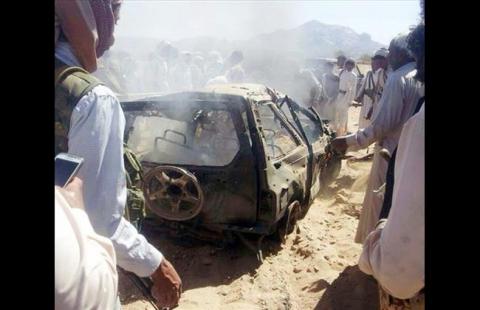Houthi Leader Blames Separatists in South Yemen for Political Stalemate


SANA, Yemen — The Houthi rebel group that has seized control of Yemen’s capital said on Tuesday that separatist forces in the south were responsible for the impasse preventing an end to the political crisis convulsing the country.
“Some forces in the south are taking provocative steps,” the leader of the group, Abdel Malik al-Houthi, said in a televised speech. “This country is for all of us and can fit all of us.”
Mr. Houthi proposed new talks in the speech, and his group released a presidential aide seized 10 days ago as a good-will gesture. But there was no indication that his speech signaled an easing to the crisis in Yemen, the Arab world’s poorest country and an incubator for Al Qaeda in the Arabian Peninsula.
The Houthi movement, a Shiite group with Iranian backing, opposes Al Qaeda but also objects to the strong United States influence here. It took over main parts of the capital, Sana, last week, including the presidential palace.
Abdu Rabbu Mansour Hadi, Yemen’s pro-American president, resigned along with his cabinet leaving the country leaderless and divided.
The United States, which has relied on Mr. Hadi as a counterterrorism partner in its drone-strike campaign against Al Qaeda, has stopped its collaboration and temporarily closed its embassy for all work except emergencies.
Alarmed by the Houthi advance and the ensuing power struggle, the southern separatist movement, Heraq, asserted its demand for independence by seizing control of territories and raising its own flag over some government buildings.
“The crisis in Sana is between forces that we consider to be occupiers,” said Ali al-Quthairi, a spokesman for a council composed of some of the main groups in the south fighting for independence. “We lost all hope for building a true civil state in Sana.”
Mr. Houthi’s speech followed days of closed negotiations between the different forces. The Houthis, who established themselves as the dominant force on the ground, but have no presence in Parliament, pushed to form a power-sharing presidential council that would lead the country through a period of transition. The majority party of former longtime president, Ali Abdullah Saleh, who still wields influence, angled for a constitutional framework that would appoint the head of parliament as a transitional president. Meanwhile, separatists in the south, where Al Qaeda’s presence is strongest, insisted on seceding.
Unlike his last speech, Mr. Houthi stopped short of making heavy-handed threats. Instead, he called for a meeting in Sana on Friday to hold talks between the different forces.
The Houthis also released Mr. Hadi’s chief of staff, Ahmed Awad Bin Mubarak, who was abducted on Jan. 17 by the rebel group in their advance on the capital.
NY Times

Aden — Yemen Airways has announced new updates to its ticket cancellation (VOID) policy, introducing financial penalties on travel agents in…

Geneva – The United States announced that Yemen will not be among the countries benefiting from a new $2 billion funding pledge for United Na…

Paris — The French humanitarian organization Acted announced that it has delivered cash assistance to nearly 89,000 people affected by displa…